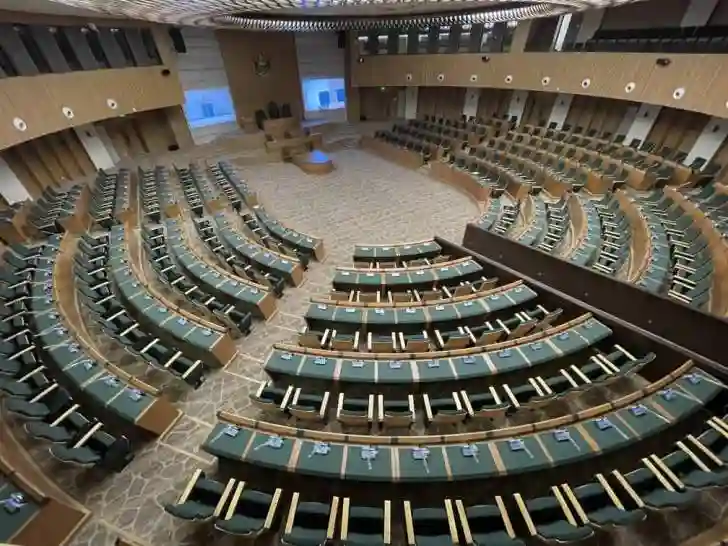ZANU PF chief whip Pupurai Togarepi has said the ruling party will not use its two-thirds majority in the National Assembly to pass laws that erode democracy.
Following the 03 February 2024 by-elections, ZANU PF won all six seats under contest to attain a two-thirds majority in the lower House.
The by-elections were conducted in Chegutu West, Goromonzi South, Mkoba North, Pelandaba-Tshabalala, Seke, and Zvimba East.
All the seats had been won by the opposition Citizens’ Coalition for Change (CCC) in the August 2023 general elections but the MPs were recalled by Sengezo Tshabangu, an unknown CCC activist who claims to be the party’s interim secretary-general.
Although ZANU PF doesn’t have a two-thirds majority in the Senate needed to amend the constitution, the party with majority control in Parliament can still amend existing laws and pass new bills.
Speaking in an interview with The NewsHawks, Togarepi, who is also the Chivi South MP, said ZANU PF will not push to change laws or pass new Acts to further tighten its hold on power but will put the interests of people first. Said Togarepi:
We will not use our majority to change laws for the sake of it. There hasn’t been an indication from our leaders or Parliament of such intentions.
When we contest any election the primary objective for ZANU PF is to represent the people of Zimbabwe, to give leadership as well as protecting the founding principles of our revolution. More MPs for us means representing more people and their aspirations.
Local academic Phillan Zamchiya told The NewsHawks that contrary to popular perceptions, ZANU PF does not and cannot have a two-thirds majority in Parliament necessary to pass a constitutional bill on its own. He said:
In Zimbabwe, a Parliament consists of the Senate and the National Assembly. I have noticed that when pundits talk of Parliament, they tend to colloquially refer to the National Assembly and thus far and no further.
For a constitutional bill to pass as expressed in section 328 (5) of the Constitution, it needs yes votes of a two-thirds majority of the membership of each House of Parliament that is the National Assembly and the Senate.
Following the by-elections held earlier this month, ZANU PF now has 190 seats (150 directly elected through first past the post, 33 proportional representation for women and seven youth quota) out of 280 seats in the National Assembly.
So, ZANU PF has a two-thirds-majority only in one House of Assembly (Lower House and not Senate) and that is not enough to amend the constitution. Added Zamchiya:
This is because in the Senate, the other part of Parliament, Zanu PF does not and cannot have a two-thirds majority during the tenure of this Parliament.
In the August 2023 general election, ZANU PF got 33 out of 80 seats and will therefore need 21 seats to get a two thirds-majority in the Senate which is required to pass a constitutional amendment on its own.
Opposition recalls cannot result in ZANU PF getting a two-thirds majority in Parliament necessary to pass a constitutional amendment on its own.
This is because the party that recalls simply fills the vacancy with its members. There are no by-elections for that House.
ZANU PF will therefore need to persuade other members of the Senate for Parliament to be able to pass a constitutional bill.
These Senate members are two representatives for people living with disabilities, the 18 traditional leaders and at least one Member of Parliament from the Citizens Coalition for Change.
Politically, this is feasible given the prevailing Plastic Politics from the decomposing opposition party and the partisan politics of some traditional leaders. Add to that ZANU PF’s use of coercion, persuasion and patronage.
However, it is not given and it is not a fact that ZANU PF has a two-thirds majority in Parliament.
Reports indicate that President Emmerson Mnangagwa has a long-standing desire to amend the constitution to scrap presidential term limits beyond the current two terms (10 years).
However, besides ZANU PF’s failure to attain an outright parliamentary majority, an extension of presidential term limits requires a referendum and cannot benefit the incumbent.
More: Pindula News

